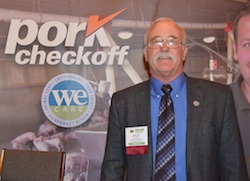 The Cotton Belt Challenge is in its second year, and Bayer CropScience is encouraging FiberMax and Stoneville cotton growers to enter to win great prizes. Growers with the highest yields and highest overall loan values in 12 regions will be recognized for both irrigated and dryland cotton. In addition to regional awards, there will be two grand prize drawings for a custom 4WD Bad Boy Buggies Ambush vehicle.
The Cotton Belt Challenge is in its second year, and Bayer CropScience is encouraging FiberMax and Stoneville cotton growers to enter to win great prizes. Growers with the highest yields and highest overall loan values in 12 regions will be recognized for both irrigated and dryland cotton. In addition to regional awards, there will be two grand prize drawings for a custom 4WD Bad Boy Buggies Ambush vehicle.
“FiberMax and Stoneville cotton varieties have the germplasm and trait technologies to help growers produce profitable cotton yields and fiber quality,” said Jeff Brehmer, U.S. product manager for FiberMax and Stoneville cotton. “Cotton production varies across the United States, depending on weather, irrigation, soil type, pest pressure and other factors. We want to recognize successful cotton production in diverse regional scenarios, and the Bayer CropScience Cotton Belt Challenge gives growers a chance to be rewarded by region for producing high-yielding and high-quality cotton.”
Growers enter by filling out an official entry form and submitting their gin receipts. All regional irrigated and dryland winners in the yield and fiber quality categories will receive 10,000 Innovation Plus™ points – a $500 value.
To qualify, growers must submit their yield and quality results from a minimum of 50 acres and verify their production through gin receipts. Yield is based on ginned lint yield, and quality is based on USDA loan value. If any portion of a field is irrigated, then the entry must be in the irrigated category.












